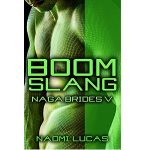Here is the summary of Invictus by Marian Andrew
“Invictus,” written by William Ernest Henley in 1875, is a short yet powerful poem that has resonated with readers for over a century. The poem’s enduring popularity can be attributed to its themes of resilience, determination, and the indomitable human spirit. In this 700-word analysis, we will explore the poem’s meaning, its historical context, and its impact on literature and popular culture.
The title, “Invictus,” is Latin for “unconquered” or “undefeated,” setting the tone for the poem’s central theme. Henley penned this poem during a period of personal struggle, having endured the amputation of one of his legs due to tuberculosis of the bone. In this context, “Invictus” becomes a testament to the poet’s own resilience in the face of adversity.
The poem consists of four quatrains, each with a regular rhyme scheme (ABAB) and a straightforward, almost stoic tone. It is written in the first person, with the speaker addressing the reader directly. The choice of the first-person perspective allows the reader to empathize with the speaker’s inner thoughts and emotions.
Out of the night that covers me, Black as the pit from pole to pole, I thank whatever gods may be For my unconquerable soul.
In the first stanza, the speaker begins by acknowledging the darkness that surrounds them, both metaphorically and, possibly, literally. This darkness represents the challenges and difficulties that life presents. The speaker’s gratitude to “whatever gods may be” suggests a sense of spiritual or existential contemplation. Here, the speaker expresses thankfulness for the inner strength and resilience that has allowed them to endure and persevere.
In the fell clutch of circumstance I have not winced nor cried aloud. Under the bludgeonings of chance My head is bloody, but unbowed.
The second stanza highlights the speaker’s unwavering resolve in the face of adversity. The phrase “fell clutch of circumstance” conveys a sense of life’s relentless and often harsh challenges. Despite the physical and emotional pain endured, the speaker has not “winced nor cried aloud,” signifying their refusal to succumb to despair or self-pity. The metaphor of being “under the bludgeonings of chance” emphasizes the idea that life can be brutal, but the speaker remains steadfast and unbroken.
Beyond this place of wrath and tears Looms but the Horror of the shade, And yet the menace of the years Finds and shall find me unafraid.
The third stanza speaks to the inevitability of death, symbolized by “the Horror of the shade.” Here, the speaker acknowledges that life is finite and that everyone must eventually confront their mortality. However, the key message lies in the speaker’s unwavering resolve to face the passage of time with fearlessness. The phrase “Finds and shall find me unafraid” underscores the idea that, no matter what challenges and hardships lie ahead, the speaker will confront them with courage and resilience.
It matters not how strait the gate, How charged with punishments the scroll, I am the master of my fate: I am the captain of my soul.
The final stanza of “Invictus” delivers its most famous lines, encapsulating the poem’s central message. The speaker asserts their autonomy and agency over their own destiny. The reference to a “strait gate” and a “scroll” possibly alludes to religious or moral judgment, suggesting that no external forces or judgments can dictate the speaker’s fate. Instead, they declare themselves the “master of my fate” and the “captain of my soul,” emphasizing their self-determination and resilience in the face of life’s trials.
“Invictus” has had a profound impact on literature, popular culture, and individuals seeking inspiration in the face of adversity. The poem’s message of inner strength and the ability to overcome life’s challenges resonates with people from all walks of life. It has been quoted and referenced in numerous speeches, books, films, and even sports events, making it one of the most widely recognized and cherished poems in the English language.
In the realm of literature, “Invictus” serves as a powerful example of Victorian-era poetry and its emphasis on individualism, self-reliance, and inner fortitude. It is often studied in classrooms and anthologies alongside other notable works of the period.
Beyond literature, “Invictus” was notably recited by Nelson Mandela during his imprisonment on Robben Island. Mandela found inspiration in the poem’s message of resilience and determination, which encapsulated his own struggle against apartheid and his resolve to emerge from imprisonment unbroken.
In popular culture, the poem has been referenced in various forms, including in the title of the 2009 film “Invictus,” directed by Clint Eastwood and starring Morgan Freeman as Nelson Mandela. The film explores themes of leadership, reconciliation, and the power of sport in post-apartheid South Africa.
In conclusion, “Invictus” by William Ernest Henley is a timeless and impactful poem that continues to inspire individuals to confront life’s challenges with unwavering determination. Henley’s personal experiences and the universal themes of resilience and self-determination have ensured the poem’s enduring relevance in literature, popular culture, and the hearts of those who turn to it for strength and inspiration. It stands as a testament to the enduring power of poetry to capture the essence of the human spirit.
Relevant File technicalities:
. Name of Title: Invictus
. Author Name: Marian Andrew
. Language for Reading: English
. Supportive Formats: PDF/ePub
. Cost For Getting: Free to Download
. Genre: Action & Adventure Romance
. Series: None
. Price: Free
. Publish Date 4 Oct, 2023
Invictus by Marian Andrew Download PDF
Download your desired file snap on the button specified below to download Invictus by Marian Andrew The download method is fully financed without any spammy or broken links with the infant quality of PDF and ePub. All the links on our servers are quick, clean, and free from panic and spammy advertisements. You may also like The Guardian by Alexis Winter PDF Download








